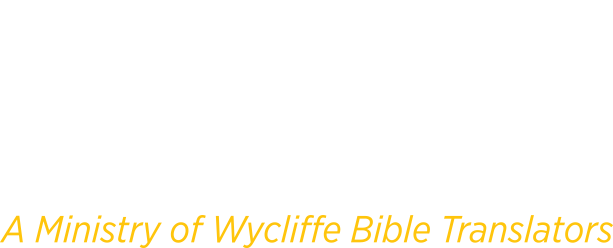Tuesday April 16, 2024
Article of the Month
Golden Age for Gift Annuities – Part III
However, in 1946 the fifteen million Americans who served in the military during World War II returned home and started families. As a result, the Baby Boomer generation (born 1946 to 1964) has nearly double the number of individuals turning age 75 each year when compared with the Quiet Generation. Because the senior Baby Boomers are now age 76, for the next two decades there will be a steady growth in the size of the primary gift annuity market. With a dramatic increase in potential annuitants, the coming decade is likely to be a golden age for gift annuities.
Securities Charitable Gift Annuity (CGA) Rules
Nonprofits that issue gift annuities must understand both the federal and state CGA regulations. As a result of litigation in the mid-1990s, two important pieces of federal legislation were passed with respect to gift annuities. The Charitable Gift Annuity Antitrust Relief Act of 1995, the Philanthropy Protection Act of 1995 and the Charitable Donation and Antitrust Immunity Act of 1997 enabled charities to offer the same rates as other charities that do gift annuities.
Charitable Gift Annuity Antitrust Relief Act of 1995
The Charitable Gift Annuity Antitrust Relief Act of 1995 is a very simple statute that has as its primary purpose exempting gift annuity rates from antitrust laws. Section 2(a) states that two or more persons described in Sec. 501(c)(3) shall be permitted to "use, or to agree to use, the same annuity rate for the purpose of issuing one or more charitable gift annuities."
Simply stated, this statute enables the American Council on Gift Annuities (ACGA) to publish recommended rates and enables the 1,500-plus charities that follow these same rates to continue the historic practice of uniform rates. In surveys by the ACGA, over 90% of charities surveyed were following the recommended rates. For half a century, the argument has been made that it is desirable from both the perspective of charitable intent and the security of annuity payments for charities to follow standard rates.
The Charitable Donation Antitrust Immunity Act of 1997 amended the Charitable Gift Annuity Antitrust Relief Act of 1995 to explicitly provide immunity from antitrust laws for charitable gift annuities and charitable remainder trusts.
Philanthropy Protection Act of 1995
The Philanthropy Protection Act of 1995 is a fairly comprehensive statute. It deals specifically with securities regulation issues.
A multitude of organizations and institutions in our society issue securities of many different types. These stocks, bonds, annuities, insurance products and other securities are regulated by federal and state statutes designed to protect the consumer. The basic goals of these laws are to provide consumers with a full and fair representation of the value underlying the security and an explanation of the individuals and entities conducting the business activities represented by the securities.
The purpose of the Philanthropy Protection Act provisions is to exempt charitable common funds from the full requirements of the Investment Company Act of 1940, and to require a level of disclosure that is appropriate for these common funds. Section 2(a) of the Philanthropy Protection Act exempts from Section 3(c)(10) of the Investment Company Act of 1940 pooled income funds, funds set aside as reserves for charitable gift annuities, common remainder trust or lead trust funds, and other irrevocable charitable trust funds. This means that charitable funds are no longer "investment companies" for purposes of the act. However, Subsection (e) of the same statute requires that, in exchange for exemption, each fund shall provide "to each donor to such fund, at the time of the donation or within 90 days after the enactment of this sub-section, whichever is later, written information describing the material terms of the operation of such funds."
Gift annuities are specifically mentioned in Section 2(a)(B)(iii) of the Philanthropy Protection Act. Thus, the act requires a reasonable level of disclosure for gift annuities. However, since the annuity contract is a general obligation of the charity, in a broad sense, the security behind the gift annuity is different from and the risk dramatically different from an investment fund.
The Philanthropy Protection Act of 1995 is silent as to the specific requirements that must be included in a disclosure. Your counsel should determine the appropriate information for inclusion as a material fact. For a gift annuity, it seems probable that disclosure should include notice (i) of the existence of the contractual relationship, (ii) that the obligation of the charity is a general claim on all assets of the charity, and, (iii) of the existence of a reserve fund that complies with the investment requirements of the applicable state law. In addition, the gift annuity proposal should illustrate all of the various tax benefits and rules applicable to the annuity. The first three requirements can be included in both promotional materials and a cover letter to the donor. Most software illustrations would comply with the reasonable disclosure requirements for the tax and payout benefits. To reduce securities concerns, common investment language should be removed from proposals. For example, words such as "guaranteed interest" should be replaced with "fixed payments" or other less commercial-sounding terms.
It is important to comply with both the letter and spirit of securities law. Where the meaning is not particularly specific (in this case the "material facts" disclosure is not clearly specified by the statute), one should attempt to make a full and fair, but reasonable, disclosure. This disclosure should enable the donor to know the name and business structure of the charity. There is no specific mandated form for this information, but common sense and good faith efforts to provide this information should be received favorably by the Securities and Exchange Commission.
Specimen Disclosure Statement
While the exact format of any disclosure statement should be reviewed by counsel for each individual charity, it could be possible to use a disclosure statement similar to the following in appropriate circumstances. This example of a disclosure statement is offered for educational purposes. This is an area of the law with a wide range of views from attorneys who advise charities. All organizations must have a thorough review by their own corporate counselors.
For a gift annuity, the proposal should include the common explanation of all the various tax implications. In addition, the letter to a donor could include an explanation similar to the following:
Mary Jones
1234 Street Address
Pleasantville, Kentucky 19384
March 26, 2023
Dear Mary,
Thank you for considering a gift annuity agreement with our charity. This gift annuity is an irrevocable contract between you and Charity Name. Your gift of $25,000 to us enables annuitant Mary Jones to receive fixed annuity payments for one lifetime. Because this is a gift annuity and not a commercial annuity, the fixed payout rates may be lower than with a commercial annuity. However, you will also be able to benefit from a charitable income tax deduction for part of the gift amount to us.
We are delighted that annuitant Mary Jones will be receiving an annuity of $518.75 paid quarterly for one lifetime. The payout amounts are based upon the annuitant's age and the standard gift annuity payout rates of this organization. This gift annuity is governed by the laws of the State of Kentucky. It may not be transferred or assigned, except that an annuitant may at a future time voluntarily assign it to us.
This gift annuity is a general obligation of our charity and is backed by all of our assets. Our general endowment is valued at over $10,000,000 and is invested primarily in good-quality public stocks, bonds and mutual funds. We also maintain a gift annuity reserve fund valued at over $1,000,000 that is invested in accordance with our state law. The gift annuity investment funds are exempt from federal securities laws under the Philanthropy Protection Act of 1995. This explanation of a charitable gift annuity is consistent with the disclosure required by that law. Our actions are designed to secure for annuitant Mary Jones the benefits of this gift annuity for one lifetime.
The contact persons at our charity are myself and our gift annuity staff. We will send annuitant Mary Jones periodic information on this gift annuity. In January of each year, we will send tax information that is important for the completion of IRS Form 1040. Please give this information to a qualified tax preparer. Our staff also is willing to answer any questions about our gift annuity program.
You are welcome to take this explanation to your qualified professional advisor. He or she is the person who can give you counsel regarding the risks, taxation and fixed payments from this gift annuity. We offer this information solely for educational purposes and emphasize that we are not giving tax, legal or other professional counsel. For such information, you should contact your qualified professional advisor.
It has been a pleasure to be of service to you. Please feel free to contact us if we can be of any further assistance.
Cordially yours,
Signer, Signer Title
Charity Name
Charity Address
City, Kentucky 19384
Recommended Action Plan
First, review the securities compliance issues for your organization. If your charity issues gift annuities or invests trusts in common investment funds, take appropriate action to modify and expand the above language as deemed appropriate by your legal counsel.
Second, review potential liability issues with your counsel. These risks should be carefully evaluated. Liability issues may require charities to make a more complete disclosure than would otherwise be necessary under the securities laws.
Third, most success in planned giving is a result of marketing. After decisions are made on the securities and liability issues, your marketing director is the key person for a successful charitable gift annuity program.
State Regulation of Charitable Gift Annuities
While gift annuities are subject to federal regulation through The Philanthropy Protection Act of 1995, many state insurance commissioners also are responsible for regulating gift annuities issued to donors in their states. While regulation of the issuance of charitable gift annuities varies greatly by state, there are four basic regulatory structures: registration states, notification states, conditional exemption states and silent states. The extent of state regulation often depends on whether or not a state considers gift annuities a type of insurance or securities and thus subject to regulation from the state's insurance department or securities commission. This chapter provides a general overview of these four regulatory types. To view details on regulations for a particular state, refer to GiftLaw Pro Chapter 1.7 and view the selected state requirements. In contrast, at the federal level, organizations holding exemption letters from the IRS are already qualified to accept gifts from donors establishing gift annuities.
Registration states have the highest level of regulation and require charities to meet statutory minimums, obtain a permit and file annual submissions. Notification states require charities to meet statutory requirements and notify the appropriate state agency in writing of its first issuance of a charitable gift annuity in the state. A very small number of these states also require annual submissions. In conditional exemption states, the charity only needs to meet the statutory requirements to issue gift annuities as a permit and/or notification to the state is/are not required. Finally, silent states provide little to no express guidance or requirements regarding the issuance of gift annuities.
Registration States
Registration states require charities to meet statutory minimums and file an application to obtain a permit to issue gift annuities, often called a "Certificate of Authority" or "Certificate of Exemption." While there are a variety of requirements for obtaining a permit, most states require the submission of basic information about the charity (such as various corporate documents) and more detailed information on its management, financial information and condition of any existing gift annuity program. Other required items include samples of each type of annuity agreement meeting state requirements (disclosure language, etc.), the annuity payout rate schedule, the most recent Form 990 and proposed gift annuity advertising materials. About half of these states require an application fee ranging from $25 to $4,656. Fees will change periodically.
Charities are not authorized to issue gift annuities until the application is approved and a permit is granted. Mere submission of an application is not sufficient. Many registration states impose penalties for issuing gift annuities without a permit ranging from permanent denial of a permit to fines between $100 and $10,000.
Most registration states require maintenance of a legally and physically segregated account for the gift annuity funds. The minimum required balance of the account varies by state (many impose reserve requirements) but is typically based on the present value of the liabilities.
Once a permit is obtained, charities are required to submit an annual report that often includes the charity's financial statements with reserve account balances and certification of valuation of the liabilities. The method of calculation used (interest rate and mortality tables) to determine the valuation of the liabilities also varies by state. Crescendo Admin software performs state reserve calculations.
Permit States: Alabama, Arkansas, California, Florida, Hawaii, Maryland, New Jersey, New York, North Dakota, Puerto Rico, Tennessee, Washington
Notification States
Notification states require charities to meet statutory requirements and notify the appropriate state agency in writing of their first issuance of a charitable gift annuity in the state. The principal difference between a registration and notification state is that the notification state requires that the charity simply send a letter to the insurance department (in most cases) rather than file an application of detailed information with the state to obtain a permit. The letter notifies the state that the charity has met the statutory requirements and plans to issue gift annuities in that state.
The requirements for the issuance of gift annuities vary by state but often require the charity to have a minimum number of years in active operation (from two to 20) and a minimum amount in unrestricted assets (from $100,000 to $2,000,000). Many states also require specific disclosure language to be included in all gift annuity agreements issued to residents of the state. Generally, the notification states do not have the annual reporting, reserve and investment requirements that are imposed in permit states.
Notification States: Alaska, Connecticut, Georgia*, Idaho, Iowa, Mississippi, Missouri, Nevada, New Hampshire*, New Mexico, North Carolina, Oklahoma*, Texas, West Virginia *Annual reporting required.
Conditional Exemption States
Conditional exemption states only require charities to meet statutory requirements before issuing charitable gift annuities. No permit or notification to the state is required, so charities can issue gift annuities as soon as they meet the requirements. The usual requirements for issuance of gift annuities are active operation for a minimum number of years (from two to 20) and the maintenance of a minimum amount in unrestricted assets (from $100,000 to $2,000,000). Some states also require specific disclosure language in all gift annuity agreements issued to residents of the state. Conditional exemption states do not require notification, annual reporting, reserve or specific investment requirements.
Conditional Exemption States: Arizona, Colorado, Illinois, Indiana, Kansas, Kentucky, Louisiana, Maine, Massachusetts, Minnesota, Montana, Nebraska, Oregon, Pennsylvania, South Carolina, South Dakota, Utah, Vermont, Virginia, Wisconsin.
Silent States
Silent states either do not address charitable gift annuities at all or only state that their issuance is exempt from regulation as insurance under state law. While some of these silent states have court cases or legal opinions that mention gift annuities, there is no prevailing legal authority for issuance of gift annuities in these states. For this reason, you should seek legal counsel and proceed with caution if issuing gift annuities in any of the silent states.
Silent States: Delaware, District of Columbia, Michigan, Ohio, Rhode Island, Wyoming.
Conclusion
Reasonable regulation is generally positive for charities. These disclosure rules have been created to protect donors. All participants in the field of philanthropy can adjust to these statutes and proceed to serve organizations and donors successfully. Charities should ensure compliance with state requirements before issuing gift annuities in that state.
Previous Articles
Golden Age for Gift Annuities – Part II













